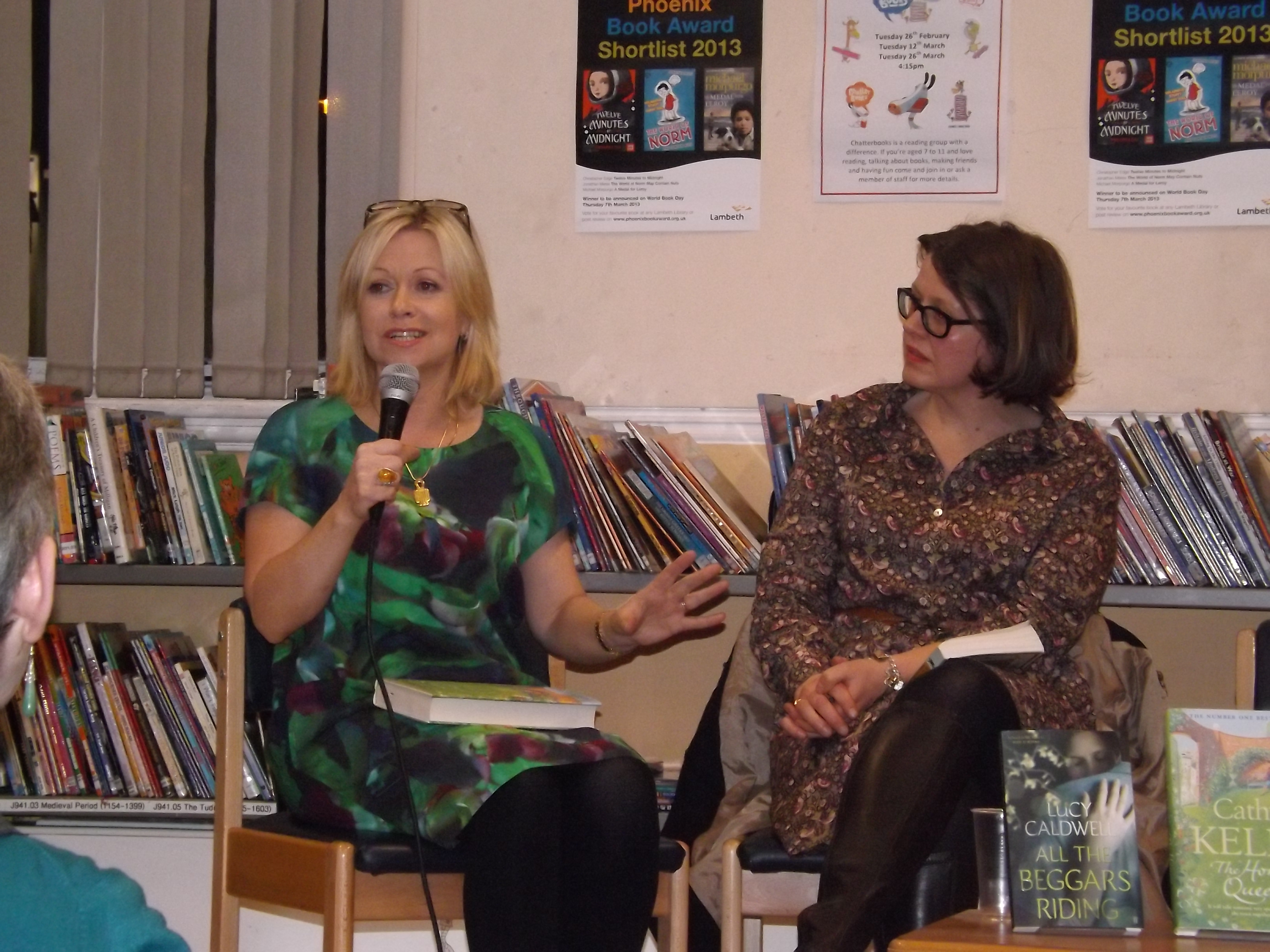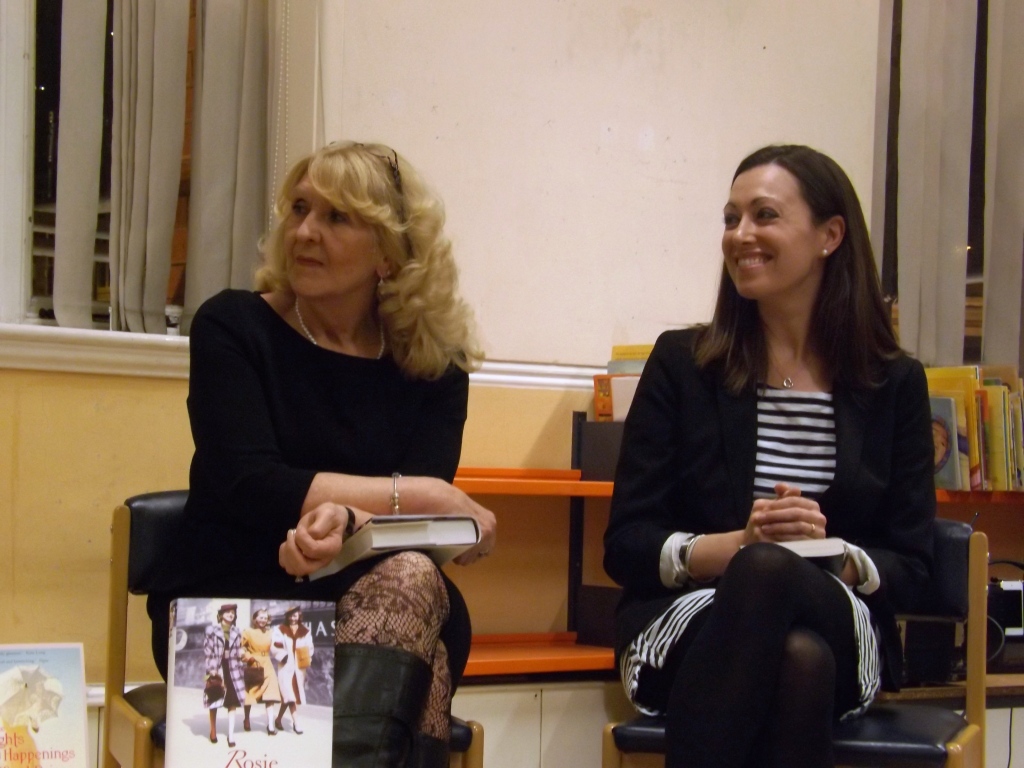To celebrate International Women’s Day, Lambeth Libraries held an author-led event at Brixton library: Women Writers’ Night. Featuring four contemporary authors of popular women’s fiction, the event argued for a re-evaluation of so called ‘chick-lit’ as being a valuable and important voice for women.
Brixton Blog Arts Editor Ruth Waters was in the green room with three of the four invited authors, Lucy Caldwell, Cathy Kelly and Rosie Goodwin, before the event to talk inspiration, libraries and previous nightmare fans.

Cathy Kelly has just had her 14th novel published, The Honey Queen. Her trademark is warm story telling and she consistently tops the bestseller lists around the world with books which deal with themes ranging from relationships and marriage to depression and loss, but always with strong female characters at the heart. When I ask her how she felt about being invited to an event that celebrates women, she beams: “I was delighted. I love all library events; it’s always a real treat to talk directly to your readers. But this one was especially interesting to me as a celebration of women. I write mainly about women and for women. It’s the emotional areas that always interest me and I try to write from the heart.”
Lucy Caldwell has recently released her third novel, All the Beggars Riding, about a plastic surgeon who leads a double life with families in England and in Ireland. She is the author of two previous novels, Where They Were Missed (2006) and The Meeting Point (2011), which was featured on BBC Radio 4’s Book at Bedtime and was awarded the Dylan Thomas Prize. Lucy was also pleased to be invited to Brixton library for Women Writers’ Night: “I’m naturally drawn to female relationships, that is women and other women: the mothers and daughters, sisters and best friends.”
Asking Lucy and Cathy about their previous experiences of author Q&A sessions, it’s clear that they’ve hardly ever had a bad experience. What have been some of the most interesting questions they’ve been asked at events like this? “One of the things which I’m often asked is ‘what happens to my characters after the novel’ – that’s one of the best questions because it shows your characters have really come alive for someone, but also one of the worst, because you always feel like you’ve let them down.” Lucy tells me. “I find questions about where I draw my inspiration from pretty difficult, because it’s not that I don’t want to share this with my readers, it’s just that I genuinely don’t know,” Cathy explains – “as a novelist you draw on such a huge variety of sources.”
Lucy confesses that a large part of the research for her current novel, All the Beggars Riding, was actually done through reader events and chatting with her readers: “I found that whilst I was publicising my second novel, people would ask me about the sort of subject area I was interested in writing about next, and I would tell them second families and double lives. So many people used to come and talk to me after the event and volunteer their stories of men with double lives, and the impact it had had on them.”

Rosie Goodwin’s current novel, Home Front Girls, will be her 20th published novel. A gripping and emotional WWII drama about three unforgettable women who kept the country moving during its darkest hours, Home Front Girls focuses on the families torn apart by the devastating effects of War. Having previously been a Placement Support Worker and foster carer, and worked in the social services department after completing a teacher training course, Rosie is relishing being an author and most of all, meeting her readers: “As an author, you spend most of your life locked away in tracksuit bottoms with imaginary people for company – reader events are a welcome break from this and a great chance to keep in touch with your readers”. When I ask her why her books centre on female characters she confesses to a fascination with female strength in all its forms and throughout the centuries.
Questions at the event focused around the importance of women’s writing, the difficulties of being a woman today, especially in less developed and emerging economies, and whether or not feminism is still relevant. All four authors, including Wendy Jones, who I didn’t get the chance to chat to, confessed to being feminists, with Cathy and Lucy particularly keen to state that they see no discrepancy between being a feminist and wanting to wear heels and lipstick, or read chick lit (or as Cathy Kelly describes her own genre for and about slightly older women, ‘hen lit’!).
Ruth Waters can be found tweeting about art, books, plays and Brixton life at @MinimalismBlog
















